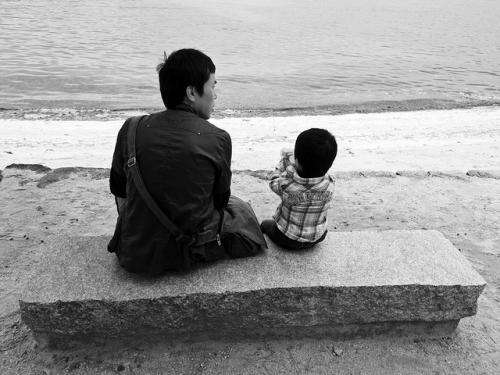She says cultural differences could explain why children whose parents were born in non-Western countries did not use stimulants to control ADHD. Credit: John Mettraux
Children diagnosed with attention deficient hyperactivity disorder (ADHD) whose parents were born in non-Western countries are less likely to be treated with stimulant medication compared with their Western counterparts.
Local researchers examined data from more than 600,000 people born in WA between 1980 and 2007 and found 13, 555 (or two per cent) children or adolescents diagnosed with ADHD used stimulants to treat the symptoms.
In breaking down the data, they found five per cent (or 734 children) treated with stimulants for ADHD had parents born in Africa, Asia, the Middle East or South America.
This compared to 12,006 (or 80 per cent) of children prescribed stimulants who had parents born in Australia, North America and Europe.
The average age when a child first used stimulant medication to control ADHD symptoms was 13, while more than half were aged between five and 12, and most (77 per cent) were male.
But 175 individuals were less than four years old.
Mothers rather than fathers may act on ADHD symptoms
UWA PhD candidate and lead researcher Manonita Ghosh says children whose father was born in Africa, Asia, the Middle East or South America were less likely to be willing to use drug treatment after diagnosis.
"There is some evidence to suggest that mothers tend to rate levels of ADHD symptoms as more serious than fathers, and also that fathers are more likely to perceive erratic or difficult behaviours as a normal part of child development, especially in relation to their sons," she says.
She says cultural differences could explain why children whose parents were born in non-Western countries did not use stimulants to control ADHD.
"Parents perceive their child's behaviour based on their own cultural upbringing, their attitudes about behavioural problems and their beliefs about the appropriateness and effectiveness of pharmacotherapy," she says.
Ms Gosh says parents within Confucian culture were expected to take personal responsibility for their child's behaviours, which may make them reluctant to use medication.
Parents born in Iran regarded ADHD behaviour as mischievous or a natural state of childhood development while Latino parents feared a stigma attached to using medication for ADHD and as a result delayed its treatment.
Ms Gosh says the results highlighted the importance of improving clinician's knowledge about cultural differences in access to and attitudes towards the diagnosis of ADHD and different approaches to its treatment as well as a need for outreach services.
The study was published in the Australian and New Zealand Journal of Public Health.
Journal information: Australian and New Zealand Journal of Public Health
Provided by Science Network WA






















